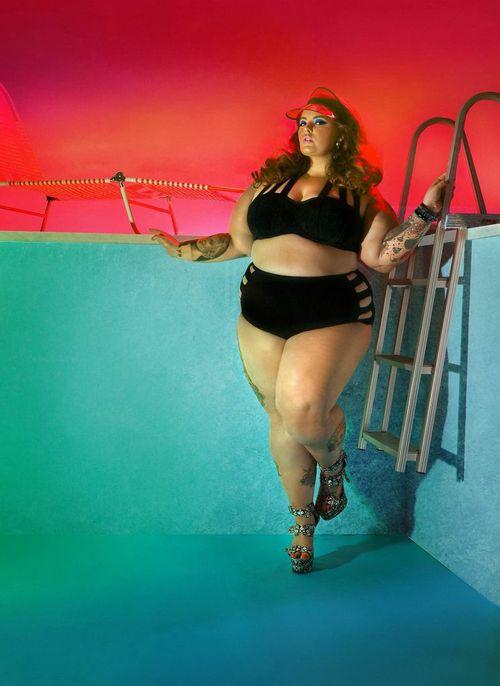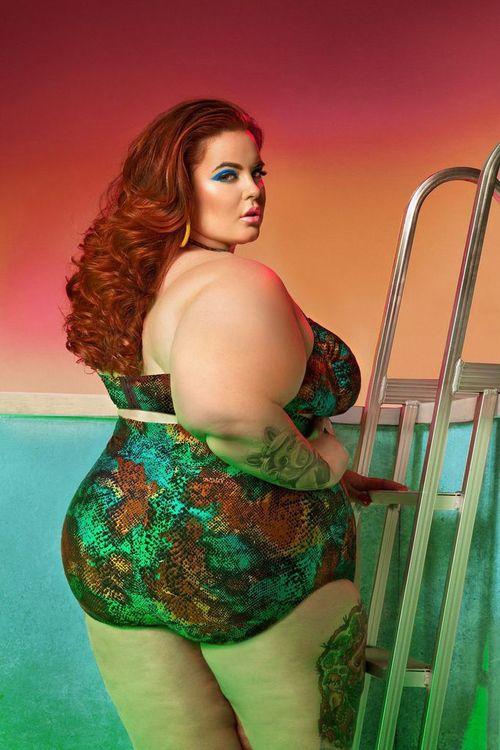Thirty-eight
years after his death, the life of Elvis Presley is more than a
nostalgic memory in the minds of his family, friends and dedicated fans.
To some of the most devoted, it continues to be a fascination,
pastime, or even a way of life. For years after Presley’s death,
surviving relatives would speak of him as if he were sometimes still
alive. Revealed today for the first time, are little known secrets
disclosed by a close relative of Presley who happened to work the
legend's home for almost four decades.
“Elvis is good to
his family and he is good to his fans,” Harold Loyd told this writer in
1992, some fifteen years after his first cousin died on August 16,
1977. “He would love knowing that fans still come to Graceland. He loves his fans.”
In May 1976, this reporter first met Loyd at the famous musical gates
at the entrance of Presley’s home, Graceland, in Memphis, Tennessee.
Besides being a loyal cousin to the King of Rock and Roll, Loyd was
obviously a dedicated ambassador to the fans who came daily to visit the
home.
Loyd was generous with information and praise for Presley as he
agreed to sit down at the Graceland gate guard shack for conversation
and interviews each evening for a few days.
“Elvis first gave me a job here in 1961,” Loyd explained. “I worked
as a groundskeeper, digging and planting flowers and shrubs, but soon I
worked my way up to security and gatekeeper. I’ve been doing this ever
since and I love it.”
“Elvis has always been very good to me,” Loyd continued. “Anytime I
ever got into any kind of trouble or type of jam, he would always help
me. He’d give me money—handfuls of money or write me a check---or he
would send someone to pick me up if my truck wouldn’t start. Simple
things. People think they might know Elvis as the singer and movie star, but I am here to tell you he is more generous and full of love than any man I have ever met.”
Loyd explained that his mother, Rhetha, and Elvis’s mother, Gladys
were sisters from a family of eight siblings. During the interview, Loyd
remained protective of Presley and would skirt around his answers to
any questions that might place his cousin in a bad light. In 1992, he
clarified what he would not dare reveal during the 1976 conversations.
“Our grandparents, the father and mother of our mothers, were Bob and
Doll Smith,” Loyd explained in 1992. “We were about as poor as you’ve
ever seen and Grandma was sick with TB (tuberculous) most of the time.
Grandpa Smith sold moonshine to make ends meet because there were no
jobs and Grandma needed help to be cared for, especially with all those
eight kids.”
“Grandpa died when I was three-years-old (in 1931),” Loyd recalled.
“Everybody tells me Momma and Aunt Gladys were as close as any two
sisters could ever be—very close. And even though they were young and
moved out of the house just to survive, they stayed close to each other.
Well, when Grandma died, the same year Elvis was born (1935), it was
kind of a relief for the two sisters.”
“Not many people know this, but Aunt Gladys was a singer too,” Loyd
smiled. “She was always doing odd jobs, being a maid and looking after
children, so she could buy material to sew clothes for her brothers and
sisters. She was always taking care of everybody. She sewed nightgowns
for her mother who had to stay in bed all the time with TB.”
“But her favorite thing was just to sing and dance,” Loyd added.
“Grandpa would let Aunt Gladys and my mother go to the dance hall there
in Tupelo and everybody tells me could do every dance there was at the
time: the Charleston, Lindy Hop, Jitterbug. And her voice was just
amazing. She would sing all the time. That is some of my best memories,
listening to Aunt Gladys sing and sometime Elvis and I would sing with
her. It’s no wonder he was the best ever singer.”
“When my mother died, Aunt Gladys became even more attached to me,”
Loyd said. “I think it is because I represented and reminded her of the
love of her sister.”
“She always told me I was her favorite,” Loyd laughed. “And Elvis told me the same and I had no reason not to believe them.”
“You see Elvis and I loved comic books, and we would trade or swap
out our comics with each other all the time,” Loyd told. “When we were
younger and I’d come over to play or they would come to visit us when my
mother will still around, Elvis and I shared and played with each
other’s toys.”
“Elvis told me later that when his other cousins came over they would
not take care of them and tear them up and not help put them away,”
Loyd continued. “But with me, I took care of his toys as he did with the
few I had---and we always helped each other put them up.”
In 1976, the public did not know about Elvis’s father, Vernon Presley
being imprisoned for a while for a forged check. The information did
not come out until after Presley’s death, as the few family members that
did know about it kept it very quiet to protect his image. In 1992,
Loyd was able to set the record straight:
“What I couldn’t tell you was that Vernon was in jail,” Loyd
revealed. “He was sent to the Mississippi State Penitentiary in
Parchman, but that was after he already spent six months in the Tupelo
(their hometown, where Presley was born) jail waiting for a trial.”
“Travis Smith, the brother of mine and Elvis’s mothers, along with
Vernon and a man named Lether Gable got involved in selling a hog to
someone but was only paid $4—not at all what the hog was worth in them
days---so Vernon got mad and put a ‘1’ in front of the ‘4’ or a ‘0’
behind the ‘4’ to make it either $14 or $40.”
“Uncle Travis told me Uncle Vernon just downright forged a check, so I
heard the story both ways,” laughed Loyd. “Anyways, Vernon spent some
good time in prison and Elvis was just a little one about three to five
years old.”
“Gladys lost the house and her and Elvis moved in next door to live
with Vernon’s brother,” Loyd added. “We all lived near each other and
they began to just hop around from family to family until Vernon could
get out.”
“Elvis told me years later that I would never have to worry about
money or a job,” Loyd continued. “He said he will always remember how
kind we were to them and that he could always depend on us. Just
thinking about how much Elvis cared for me and our family and how he
took care of us---and he didn’t owe any of us a thing---well, I love him
and I miss him every day.”
“When Elvis was in about the first or second grade--it was during
World War II-- Gladys was pregnant again,” Lloyd said. “Vernon had to go
away for work with the WPA and one day Gladys had to go to the
hospital. She miscarried that baby. That was two she lost because she
lost Jesse Garon (Elvis’s twin brother, who died during birth on January
8, 1935). We were all real worried about her because she almost died
when Elvis was born and they had to take them to the hospital then,
too.”
“We always said that was why she was so protective of Elvis,” Loyd
stated. “When those two were together they were so close, they would pet
each other and talk a different language that hardly any of us could
understand. They were just remarkable in how much they loved and cared
for each other. It was about the saddest day when Aunt Gladys died. I
rushed as fast as I could to Memphis (from Mississippi) to get to Elvis
that day.”
Loyd said there were many “fun and funny” moments working at
Graceland for so many years, but his favorite was that time Loyd walked
into the den, now called the Jungle Room, of Graceland were Presley and
his friends were sitting.
“Elvis saw me and just laughed at yelled, ‘Get the hell out of here
Harold'! I said OK, but I need to take care of something first,” Loyd
reminisced. “Elvis yelled it out again and I don't know how I did it
without cracking up, but I turned around at him, picked up my cap,
turned it around side-ways and made this terrible, ugly face, one that
he had never seen before.”
“Elvis almost fell over and threw up both hands in the air and they
all started laughing their heads off. Elvis just said ‘I'll see you
later, Harold' and as I got out the door I could hear him cracking up
'that is the ugliest damned thing I've ever seen'!”
“Later on we played a trick on Elvis and we took a picture of me with
that same ugly face and we blew it up an 8x10 and had it framed,” Loyd
laughs. “Well, when Elvis was on stage in Las Vegas
in December 1975, handed it suddenly to Elvis during his show and when
he saw what it was all he could do was crack up in front of everybody.
Elvis turned it around and showed it to the band and singers and then
they started cracking up too. Finally he turned it to some of the fans
that could see it at the front of the stage and they all laughed with
him. They told me for the rest of the show he would look over at the
picture up on top of the piano where he put it and start laughing all
over again.”
“Well, that made me feel real good that I could make Elvis laugh,”
Loyd said. “He is my cousin, and I love him and it was just a wonderful
thing to hear that after that he kept that picture in his dressing room
there at the International Hotel so he could look and laugh at it before
he would go on stage every night.”
Elvis Presley will return in hologram form to perform in Las Vegas next year
Elvis Presley will come "back to life" and return to performing in Las Vegas in the form of a hologram next year.
An entire new generation of fans will be introduced to the King of
Rock and Roll with up to 15 performances currently being considered in
the planning stages. Graceland Enterprises contacts indicated this
morning they can only speculate, but “rumors” specify this could be a
whole new Elvis like no one has ever seen before.
The buzz around Las Vegas this week is that
Pulse Evolution,
the innovators who own the creative rights to generating holograms for
Elvis, Michael Jackson, Muhammad Ali, and Marilyn Monroe, is actively
working on Presley now.
A partnership between
The Estate of Elvis Presley
and Pulse Evolution was announced last August signifying they would be
“leveraging state of the art human animation technology,” so “Elvis will
return to fans in the form of new and exciting entertainment and
branding opportunities, including ‘holographic’ performances in live
shows, commercials, and more.”
“For us, working with Pulse is about the opportunity to present Elvis
to a new generation of fans who would otherwise never get to see him
perform,” said Jamie Salter, Chairman and CEO of Authentic Brands Group,
owner of The Estate of Elvis Presley™ in partnership with the Presley
family. “Our goals for a digitized Elvis are integrity and authenticity,
to provide fans with an experience that they love and are proud to be a
part of.”
There is no doubt, with 636 consecutive sold out shows between 1969
and 1976 at the International Hotel and Casino, that Presley is the
single biggest act in Las Vegas history. The current odds for betting
are that the return of Elvis could bring back thousands of existing and
new fans to the bright lights of Vegas.
“The possibilities have no limit,” said Salter. “This could easily
lead to Elvis appearing in movies, commercials, and future unknown
entertainment formats.”
The new digital Elvis will have 11,500 moving parts, Salter revealed.
In one report, Salter said their intention is for people to go to “go
to the show and say, Wow, oh my God! I saw Elvis 50, 60 years ago, and
this is exactly the same thing.”
Presley’s ex-wife Priscilla and his daughter Lisa Maria, have
approved the technology and fans are reminded that Elvis has
appropriately been the pioneer center for new technologies in the past.
He appeared posthumously with Lisa Marie singing “Daddy Don’t Cry,” in
1997 and Celine Dion with “If I Can Dream” in 2007 through an editing
technique known at rotoscoping.
(http://www.axs.com)



























